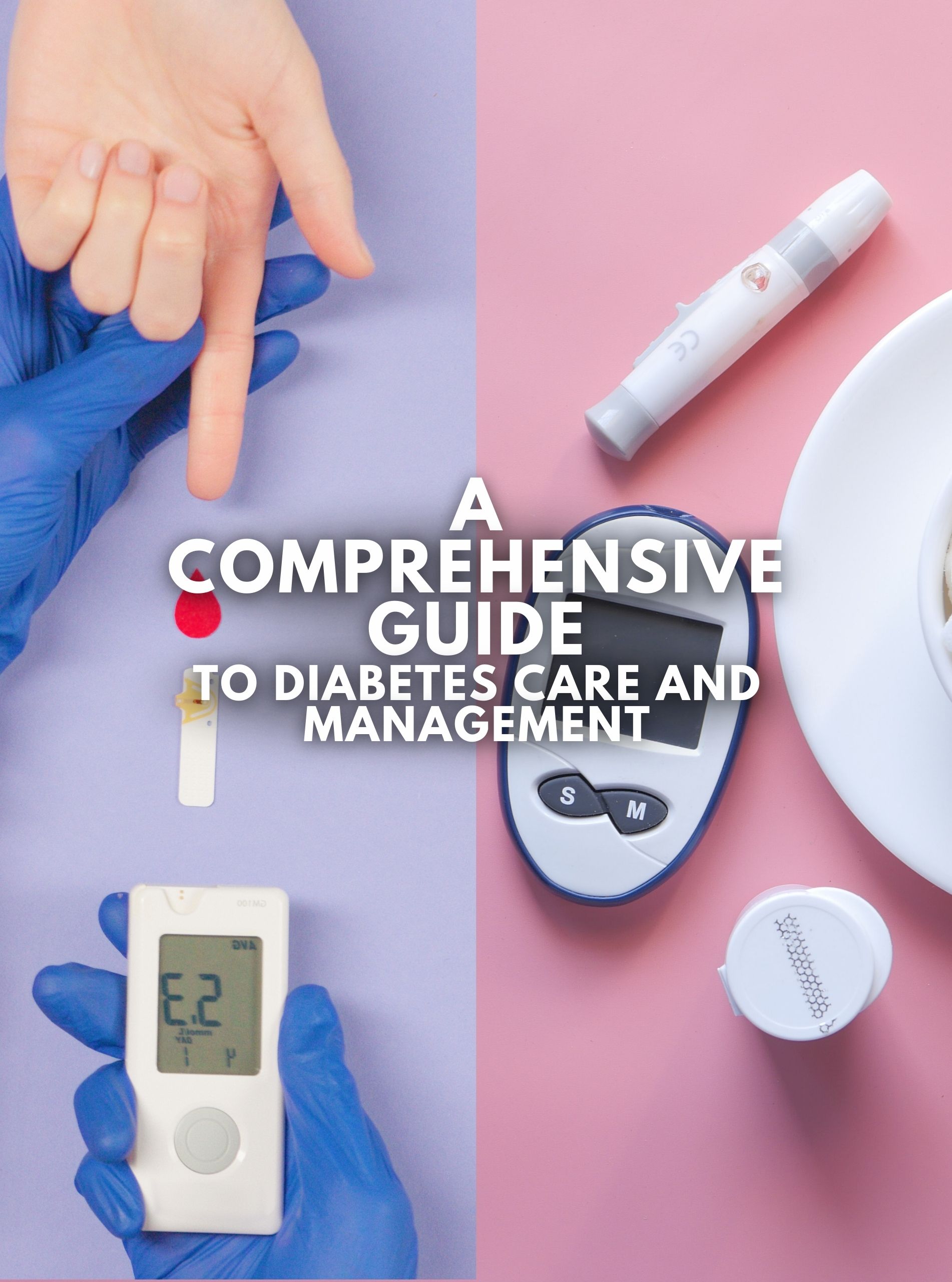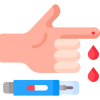


Diabetes is a chronic condition that arises when the pancreas fails to produce sufficient insulin or when the body can’t effectively use the insulin it produces. Insulin acts as a key, regulating blood glucose by allowing it into cells for energy. In the absence of enough insulin or when cells resist its effects, excess blood sugar accumulates.
Hyperglycemia, also known as elevated blood sugar, is a common consequence of uncontrolled diabetes. Over time, it inflicts severe damage, particularly to the nerves and blood vessels.
Plasma glucose issues encompass a continuum, progressing from prediabetes (including impaired fasting glycaemia and impaired glucose tolerance) to full-blown diabetes mellitus.

Previously referred to as insulin-dependent, juvenile, or childhood-onset diabetes, arises due to insufficient insulin production, necessitating the daily administration of insulin. Researchers believe it results from an autoimmune reaction in which the body mistakenly attacks itself, disrupting insulin production. Type 1 diabetes affects approximately 5-10% of individuals with diabetes. It can manifest at any age, although it commonly begins in childhood, and its symptoms typically emerge rapidly.

Previously known as non-insulin dependent or adult-onset diabetes, disrupts the body’s utilization of sugar (glucose) for energy. It hinders proper insulin usage, potentially causing elevated blood sugar levels when untreated. Roughly 90-95% of diabetes cases are type 2, and it typically develops over several years. Many risk factors contribute, including excess weight, insufficient exercise, and genetic factors. Notably, what was once primarily an adult condition is now becoming more prevalent among children.

Pregnant women who have never had diabetes can develop gestational diabetes. These women face an elevated risk of pregnancy and delivery complications. Furthermore, both these women and potentially their children are at a heightened risk of developing type 2 diabetes later in life. Diagnosis of gestational diabetes relies on prenatal screening, not reported symptoms.

Impaired glucose tolerance (IGT) and impaired fasting glycaemia (IFG) represent intermediate stages in the progression from normal blood sugar levels to diabetes. In these cases, blood sugar levels exceed normal but don’t reach the threshold for a type 2 diabetes diagnosis. Individuals with IGT or IFG face a significant risk of advancing to type 2 diabetes, although it’s not an inevitable outcome.
Symptoms of diabetes may occur suddenly. In type 2 diabetes, the symptoms can be mild and may take many years to be noticed.

Diabetes progressively harms blood vessels in the heart, eyes, kidneys, and nerves. Individuals with diabetes face an elevated risk of health complications such as heart attacks, strokes, and kidney failures. It can also inflict permanent vision loss by harming eye blood vessels. Nerve damage and impaired blood flow often result in foot problems for many with diabetes, potentially leading to foot ulcers and, in severe cases, amputation.

Healthcare professionals should conduct diabetes screening for both symptomatic and asymptomatic individuals with risk factors. The early detection of diabetes can be achieved through cost-effective blood glucose testing.
Screening tests involve the use of capillary plasma glucose, while diagnostic tests encompass fasting blood glucose, the Oral Glucose Tolerance Test (OGTT), and HbA1c measurements.

Managing diabetes involves crucial lifestyle adjustments like regular exercise, weight control, and a healthy diet.
Type 1 diabetics depend on insulin injections, while Type 2 diabetics may use medications like metformin, sulfonylureas, SGLT-2 inhibitors, alongside medications for blood pressure and statins to reduce complications.
A healthcare team can help you manage diabetes through clinic visits, routine medical testing, lifestyle education, nutritional advice, or counselling. But, when all is said and done, you’ll likely spend much more time on self-care than on clinic visits. You have the most power concerning your diabetes management.
Diabetes care is a lifelong responsibility and managing diabetes can be challenging and requires awareness. The more you know about factors that influence your blood sugar level, the more you can anticipate fluctuations and plan accordingly. Wherever you’re at with your diabetes, know that you have options and that you don’t have to be held back. You can still live your best life. All you have to do is take action and stick with it.
Life Care Diagnostic Medical Centre Sdn. Bhd. 200401034597 (673106-V)
Bangsar South
WhatsApp: 0122343610
1st Floor, Wisma Lifecare,
No. 5, Jalan Kerinchi, Bangsar South,
59200 Kuala Lumpur
Cheras South
WhatsApp: 01127213620
19A-2 & 19B-2, Block E, Kompleks Komersil Akasa,
Jalan Akasa, Akasa Cheras Selatan,
43300 Seri Kembangan, Selangor
Operating Hour:
Monday – Friday: 8.00am – 5.00pm
Saturday: 8.00am – 1.00pm
Sunday & Public Holidays: Closed